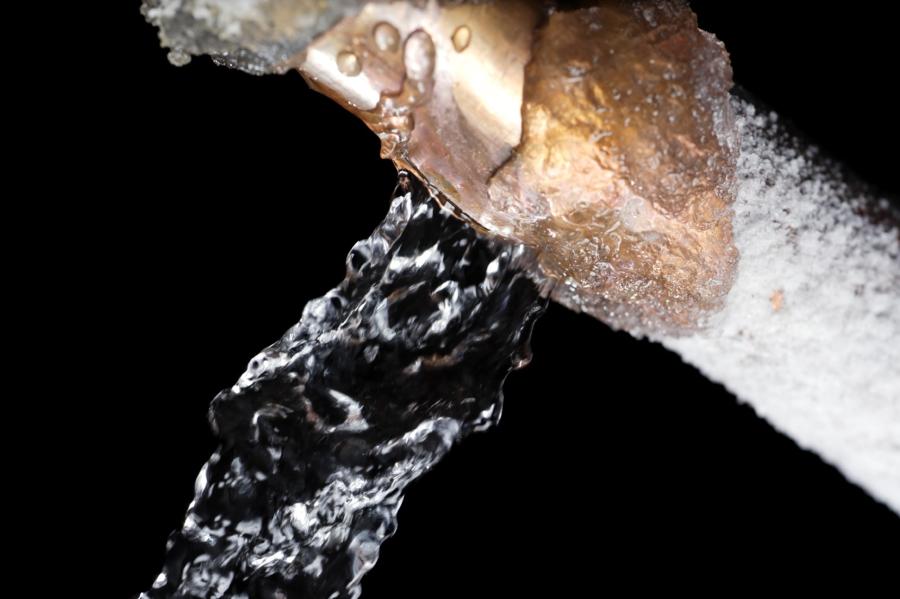How to Thaw a Frozen Water Pipe

The low temperatures and cold winds of winter can make your water pipes susceptible to freezing. Frozen water pipes can cause expensive, frustrating, and serious damage.
Not only does an ice blockage prevent water use to that line or any downstream, but the high pressure created by the ice inside the pipe can also cause the pipe to rupture. A burst pipe can spew gallons of water into a home even hours later once the ice has thawed.
Pipes that are most at risk for freezing are those in unheated spaces such as garages, basements, and attics. Pipes in poorly insulated exterior walls or under cabinets are also susceptible to freezing. Plumbing in older homes or that has frozen before is even more vulnerable.
The best way to address frozen pipes is to prevent them in the first place. But if the unthinkable does happen, you’ll have to act fast to keep the problem from getting worse.
How to Identify a Frozen Pipe
If you turn on the faucet and no water or only a slight trickle comes out, there may be a blockage of ice somewhere in your plumbing. If the pipes are exposed, such as pipes under sinks or in a basement, you may be able to see the frozen portion of the pipe. Frozen pipes often have frost on them or may have a slight bulge. If you can't locate the frozen pipe or it's not in an accessible location, you should call a licensed plumber.
How to Thaw a Frozen Pipe
If you have a frozen pipe that hasn’t burst, you need to thaw the pipe as soon as possible. You can contact a licensed plumber or try to thaw it yourself. Here are some tips to help:
- Turn on the faucet serviced by the frozen line. This will relieve some pressure and, as the ice starts to melt and water begins to flow again, help melt the ice inside the pipe.
- Heat the general area by increasing the room temperature where the pipes are exposed or placing a portable heater or heat lamp in the room.
- Apply direct heat to the frozen pipe section using a space heater, heat lamp, heating pad, hairdryer, or heat tape.
- Always follow safety guidelines when using electric appliances. Never stand in water while using an electric appliance and never leave them unattended while in use.
- Never use a blow torch or open flame to thaw pipes. It creates a serious fire hazard and can cause more damage to the pipe.
- If you start to notice water leaking from the pipe as it thaws, then turn off the water supply to that section of plumbing or the entire house.
What to Do If a Frozen Pipe Bursts
Pipes burst when frozen because water expands when it freezes, adding considerable pressure inside the frozen pipe. That pressure can cause a pipe to rupture. If a frozen pipe bursts, shut your water off at the main valve immediately to prevent flooding. A very small leak can spew 250 gallons a day, and a bigger leak can waste much more, causing serious damage and wasting money. Unfortunately, you’ll have to call a plumber to repair the damaged pipe. Contact one as soon as possible. You may also want to contact your insurance agent, depending on the extent of the damage.
Frozen Meters
While your AMR transmitter cannot freeze, the meter itself can. If your meter freezes, you'll need to contact us for a replacement one before your water service can be restored. If you have an upgraded AMR meter, there is a charge associated with having to replace it.
If you experience a frozen meter or water line, you can call our 24-hour Emergency Line at 216-664-3060 for help.
